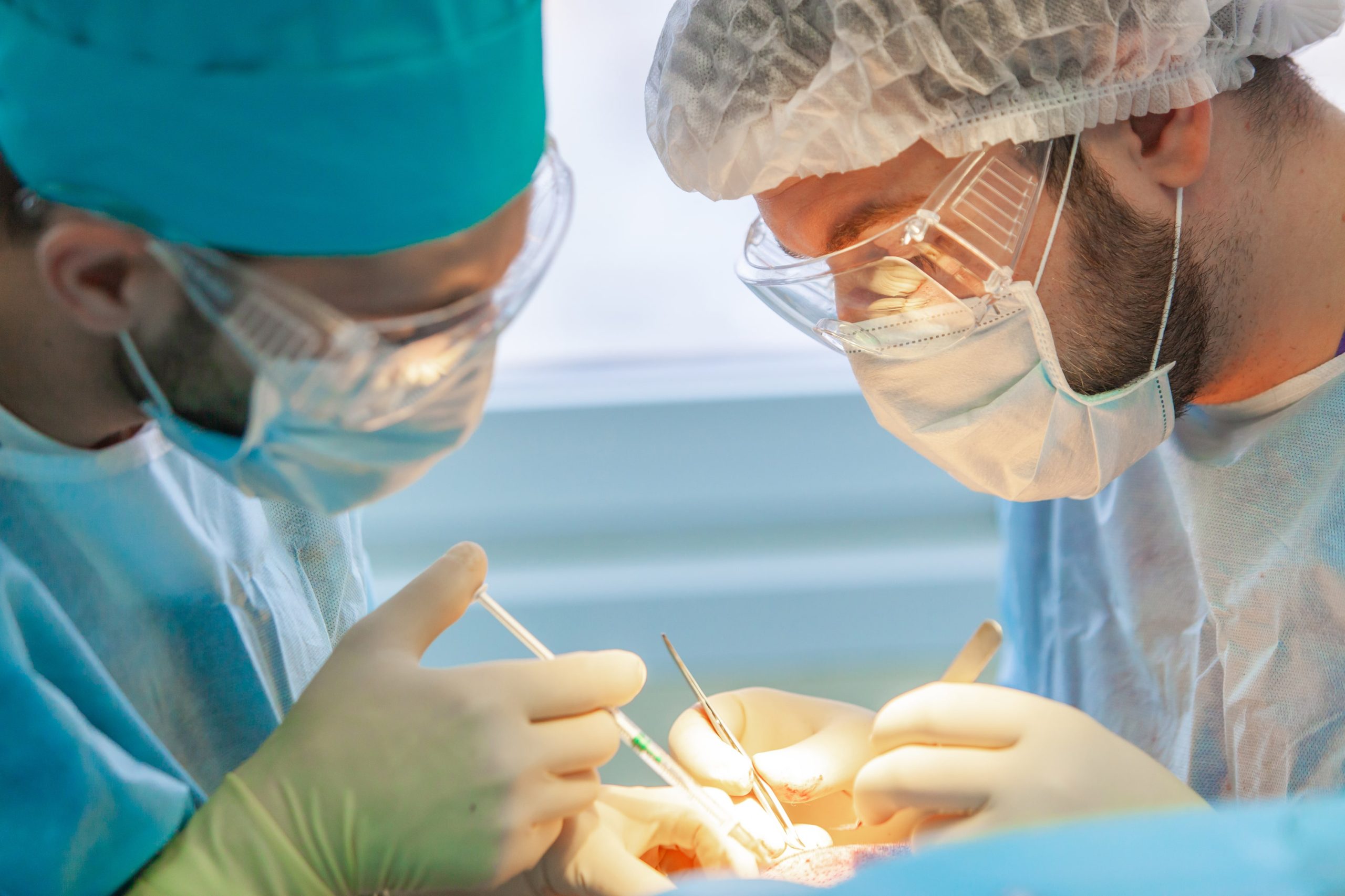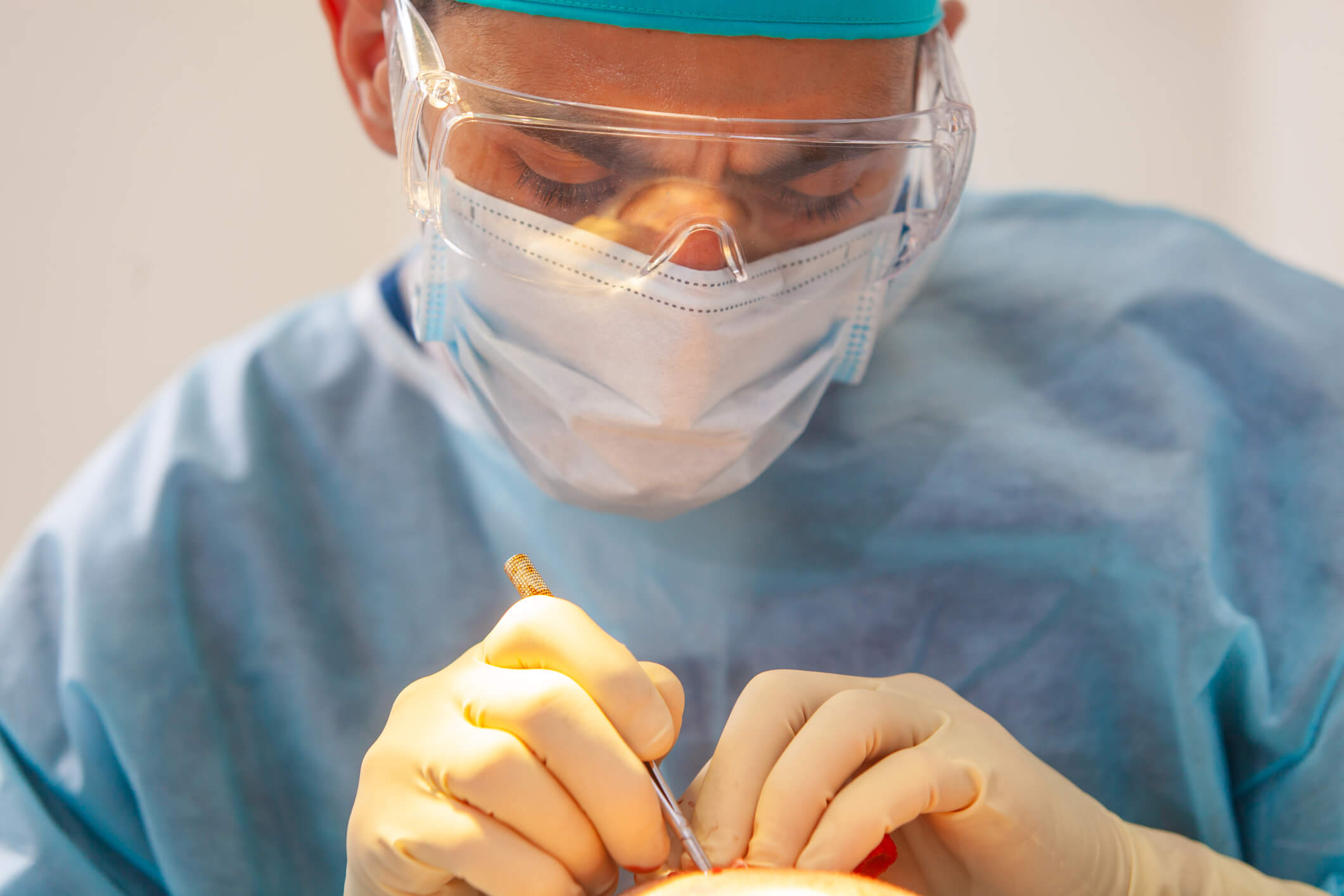What are the Pros and Cons of a Hair Transplant?

Hair Transplant to a Patient in Newport Beach, California at Neograft Hair Restoration Orange County
A hair transplant in Newport Beach is a popular option for those experiencing hair loss or baldness. The procedure involves:
- Extracting hair follicles from a donor area
- Typically, the back or sides of the head
- Transplanting them to thinning or bald areas, such as the crown
The process includes creating small holes for follicle implantation and precise navigation to achieve natural results. While effective, it’s essential to consider the pros and cons, including the need for additional treatments like finasteride or minoxidil. Diet and aftercare are also vital for optimal results. Consulting with an experienced doctor helps determine the best approach based on your specific needs, ensuring a successful hair restoration outcome.
In this article, we will explore the advantages and disadvantages of a Newport Beach hair transplant so you can decide whether it is the right option.
Overview of Hair Transplant Procedures
Hair transplant surgery is a widely used hair treatment option for individuals experiencing hair loss, offering permanent and natural results. Understanding the fundamentals of hair grafts, the techniques employed, the difference between various approaches, and the possibility of success based on tissue compatibility and wellness can help you determine if you are a suitable candidate for this treatment. Experts in hair loss treatments can guide you in restoring your hair, ensuring you make the right choice for your needs. The following is a comprehensive description of hair transplant procedures.
What is a Hair Transplant?
Hair transplantation involves transplanting healthy hair follicles from one region of the skull (typically the back or sides) to an area experiencing thinning or balding. The hair in these donor areas is typically resistant to the hormone that causes hair loss, ensuring long-term outcomes. This procedure is effective for men and women, with results varying based on individual cases. The level of success in each case can depend on factors such as the field of expertise and the specific needs of the ones undergoing the procedure. Understanding these things is crucial for anyone considering hair transplantation to improve their appearance.
Various Hair Transplant Methods
Follicular Unit Transplantation (FUT)
Also referred to as the removal method, FUT entails:
- Removing a flap of skin from the giver’s location.
- Under a microscope, the process of separating solitary follicular units is done.
- The follicles are transplanted into the recipient location.
Advantages:
- Efficient in the coverage of extensive hair loss areas.
- A more significant number of transplanted grafts in a single session.
Drawbacks:
- Leaves a linear incision in the donor area.
- In comparison to other methods, the recovery period is more extended.
Follicular Unit Extraction (FUE)
FUE is a minimally invasive technique that involves:
- A small punch instrument extracts individual hair follicles directly from the donor area.
- The follicles are inserted into the areas that are thinning or receding.
Advantages:
- No visible linear scar.
- Faster recovery time.
Drawbacks:
- It can be time-intensive for larger areas.
- It may require multiple sessions for extensive hair loss.
Suitable Candidates for Hair Transplants
Individuals with the following characteristics are most likely to benefit from hair transplants:
- Male or female pattern baldness.
- Sufficient hair density in stable donor locations.
- Expectations regarding the procedure’s results are realistic.
- It is less effective for individuals with scarring alopecia, certain medical conditions, or pervasive thinning.
Consultation and Evaluation of the Hair Transplant Procedure
A specialist determines the most effective treatment plan after evaluating your epidermis, determining the extent of hair loss, and discussing your objectives.
Preparation
The donor and recipient regions are prepared and shaven.
To mitigate discomfort during the procedure, local anesthesia is implemented.
Hair Follicle Harvesting
A portion of the scalp is excised during FUT, and follicles are dissected.
Specialized instruments are employed to extract individual follicles during FUE.
Establishing Recipient Websites
Small incisions strategically place the transplants in the recipient area, guaranteeing a natural appearance.
Implantation
The follicles that have been harvested are meticulously inserted into the recipient’s location.
Recovery and Outcomes
- Recovery in the initial stages: Within days to weeks, edema and redness diminish.
- Hair Loss: It is common for transplanted hair to shed after a few weeks as new growth commences.
- Observable Outcomes: New hair growth begins between three and four months, and the full extent of the results becomes apparent between nine and twelve months.
The Future of Hair Transplants
Thanks to advancements such as robotic-assisted FUE and stem cell-based therapies, hair transplant procedures are becoming increasingly precise and effective. They have the potential to minimize delay and optimize outcomes.

Surgeon doing a Hair Transplant in Newport Beach, California at Neograft Hair Restoration Orange County Clinic
Benefits of Hair Transplants
Hair transplants have become one of the most effective hair loss and thinning solutions. Thanks to the development of medical technology and techniques, this procedure provides a diverse array of advantages that extend beyond hair restoration. Here is a more detailed examination of the primary benefits of hair transplants and the reasons they have become a highly sought-after alternative for individuals searching for a permanent solution.
Long-Term Outcomes
Hair transplants offer an enduring solution, one of their most noteworthy advantages. A permanent solution is achieved by transplanting healthy hair follicles to thinning or receding areas, in contrast to topical treatments or medications that necessitate ongoing use. The transplanted hair will grow like the remainder of your natural hair once it has taken root.
Appearance of Nature
Your extant hair is seamlessly integrated with the transplanted hair. Modern techniques, such as FUE and FUT, guarantee precision, resulting in undetectable results that appear natural. Skilled surgeons who replicate the natural hairline and density can achieve a pristine appearance.
Increase in Self-Assurance
How individuals perceive themselves is significantly influenced by their hair. Self-esteem and social interactions may be adversely affected by hair loss. Restoring a fuller crop of hair can enhance individuals’ confidence, enhancing their personal and professional lives.
Low-Maintenance
Unlike prostheses, hairpieces, or extensions, which necessitate frequent adjustments or special care, transplanted hair is your own. After the transplanted follicles have healed, they can be washed, styled, and maintained like natural hair.
Long-Term Cost-Effectiveness
Hair transplants may appear costly initially, but they can be more cost-effective long-term than ongoing expenses for interim solutions such as wigs, medications, or other treatments. An initial investment in a hair transplant can result in substantial savings over several years of maintenance.
Minimally Invasive and Safe
Hair transplant procedures are generally considered safe when conducted by an experienced surgeon. Modern techniques like FUE are minimally invasive, resulting in shorter recovery times and smaller incisions. The procedure is generally safer and more comfortable because it only necessitates local anesthesia.
No Special Products Are Necessary
After a hair transplant, it is no longer necessary to depend on specific cleansers, conditioners, or other products to maintain your new hair. Once the recuperation period has concluded, you may resume using your typical hair care products.
Long-Term Growth
The hair follicles transplanted are resistant to the hormone DHT, which induces hair loss. This implies that the new hair continues to grow naturally and remains in good health despite the aging of the adjacent non-transplanted hair.
A Variety of Styling Options
Transplanted hair can be dyed, trimmed, or styled in the same manner as natural hair. This adaptability enables individuals to explore a variety of styles, including textured trends and sleek tresses, without any concerns.
Enhanced Psychological Well-Being
The restoration of hair can substantially impact one’s mental health. After achieving their desirable appearance, numerous patients report feeling more motivated, less stressed, and optimistic. These emotional advantages frequently result in an enhanced quality of life.
Potential Risks and Complications
Although hair transplant surgery is generally safe and effective, it is a medical procedure associated with certain risks and potential complications. By being aware of these potential consequences, you can make an informed decision and implement the requisite measures to mitigate any negative consequences. The potential risks and complications associated with hair transplants are summarized below.
Infection
Despite their rarity, infections from hair transplant may develop if adequate hygiene is not maintained during or after the procedure. Redness, edema, warmth, and pus may be present near the transplant site. To reduce this risk, it is imperative to adhere to the aftercare instructions provided by your surgeon.
Bleeding While
Some bleeding is expected during and after the procedure; excessive bleeding may suggest complications. Minor issues are typically resolved by applying pressure to the area; however, medical intervention may be necessary in uncommon instances.
Scarring
- FUT Scars: The FUT method frequently results in a linear scar on the donor site that may be visible if the hair is cut very short.
- Keloid Scars: Certain individuals, particularly those susceptible to keloids, may develop dense, raised scars.
Discomfort and Pain
Mild pain, discomfort, or tenderness in the donor and recipient areas is expected following the procedure. This discomfort typically subsides within a few days to weeks and can be alleviated with prescribed medication.
Inflammation
In the initial days following a hair transplant, swelling may manifest around the eyes and forehead. This is a transient phenomenon that typically resolves within a week.
Loss of Shock
The transient shedding of transplanted or surrounding hair as a result of trauma during the procedure is referred to as shock loss. Hair regrows typically within a few months, and this is a typical aspect of the healing process.
Unnatural Appearance
An inexperienced surgeon may result in an unnatural hairline or irregular hair density. This underscores the significance of selecting a professional with the necessary skills and experience for your procedure.
Folliculitis
Folliculitis is when the hair follicles become inflamed, resulting in red, pimple-like lumps. It may manifest when newly transplanted follicles commence to develop. Warm compresses or antibiotics are typically effective treatments for this generally benign condition.
Tingling or Numbness
Nerve involvement during surgery frequently results in temporary numbness or tingling in the skull. This sensation may endure for several months in uncommon instances.
Graft Rejection or Failure
Despite their rarity, specific grafts may need help establishing a suitable root system, resulting in patchy or uneven results. This risk can be mitigated by following the aftercare instructions and selecting an experienced surgeon.
Allergic Reactions
Reactions to local anesthesia or medications administered during or after the procedure are rare. Before surgery, consult with your surgeon regarding any allergies that may exist.
Certain patients experience prolonged recuperation.
However, some individuals may experience complications or protracted healing times as a result of their health conditions or inadequate postoperative care, even though the majority of individuals recover rapidly.

Cosmetic Surgeon Performing a Precise Hair Transplant on a Patient at Neograft Hair Restoration Orange County Clinic in Newport Beach, California
Pros and Cons of a Hair Transplant
Hair loss can significantly impact self-confidence and personal image, a significant concern for many individuals. Hair transplant surgery has become a favored solution, providing permanent and natural-looking outcomes. Nevertheless, evaluating the benefits and disadvantages of any medical procedure is imperative before making a decision. To assist you in making an informed decision, we will examine the advantages and disadvantages of hair transplants.
The Pros of a Hair Transplant
Results That Are Identical to Nature
Hair transplants entail the transfer of your natural hair from one region of your skull to the thinning or balding areas. The results are incredibly natural, as they seamlessly integrate with the rest of your hair, as the hair is your own.
A Permanent Solution
However, hair transplants provide a permanent solution to hair loss, unlike transitory solutions like wigs, topical treatments, or medications. The transplanted hair will grow naturally throughout its lifespan once it has taken root.
Low-Maintenance
No special maintenance is necessary for transplanted hair after recovery. The ability to wash, style, and trim it as one would their natural hair eliminates the ongoing costs and maintenance of alternative hair loss solutions.
Confidence Enhancement
The restoration of a complete head of hair can have a substantial impact on one’s self-esteem and overall quality of life. After the procedure, numerous individuals experience increased self-assurance in both professional and social environments.
Technology Advancements
Using techniques such as FUT and FUE has resulted in more precise and minimally invasive hair transplants, resulting in quicker recovery times and superior results.
The Cons of a Hair Transplant
Expense
Hair transplant prices can be costly, ranging from $4,000 to $15,000 or more, depending on the hair transplant clinic, surgeon, and severity of hair loss. Regrettably, most insurance policies do not typically cover cosmetic procedures of this nature.
Time Required for Recovery
Although hair transplant surgeries are minimally invasive, they still necessitate some amount of recovery time. Patients may experience swelling, scabbing, and redness in the treated areas, which may require several weeks to resolve fully.
Side Effects and Potential Risks
Infection, scarring, and unnatural-looking results are all potential risks associated with hair transplants, as with any surgical procedure, if administered by an inexperienced surgeon.
Unsuitable for All
Hair transplants require adequate donor hair to be transferred to the receding areas. Individuals who experience significant hair loss or scalp reduction may not be the most suitable candidates.
Results Necessitate Time
Although the transplanted hair will grow naturally, observing noticeable results may take several months, and the outcome may take up to a year. This necessitates realistic expectations and forbearance.
Strategies for Risk Mitigation
- Select a Surgeon with a Proven Track Record: Choose a hair transplant specialist who is board-certified and has a proven history of successful procedures.
- Follow the Aftercare Instructions: The risk of complications is reduced by adhering to proper postoperative care, which includes avoiding intense sunlight and maintaining the cleanliness of the area.
- Comprehend Your Candidacy: A comprehensive consultation with your surgeon can detect any pre-existing conditions or risk factors that may impact your outcomes.
- Preserve Realistic Expectations: Unrealistic expectations may result in dissatisfaction. Discuss your objectives with your surgeon to guarantee a comprehensive comprehension of the probable outcome.
Is a hair transplant appropriate for you?
For numerous individuals, a hair transplant is a transformative solution that provides natural and enduring outcomes. To ascertain whether it is the appropriate option for you, it is recommended that you seek the advice of a qualified specialist who can evaluate your hair loss, discuss your objectives, and guide the process.
Due to their numerous advantages, hair transplants remain popular among individuals seeking a permanent solution to hair loss and a rekindled sense of self-confidence.
Conclusion
Hair transplants can be a life-changing solution for individuals struggling with hair loss, providing permanent and natural results. Even so, evaluating the emotional, physical, and financial implications before proceeding is imperative. You can determine the optimal decision for your circumstances by meticulously evaluating the advantages and disadvantages.
Frequently Asked Questions
Is it possible for hair transplants to fail?
Although uncommon, hair transplants may fail due to factors such as inadequate postoperative care, an incompetent surgeon, or poor graft survival. This risk can be mitigated by adhering to maintenance instructions and selecting a qualified surgeon.
Is it possible for me to undertake a second hair transplant?
Indeed, a second hair transplant can be performed if the first procedure does not meet expectations or if additional coverage is required. This is contingent upon the availability of sufficient donor hair.
Are there any age restrictions for hair transplants?
Although there is no specific age limit, it may be recommended that younger patients delay treatment until their hair loss pattern has stabilized to prevent the necessity for frequent follow-up procedures.
What is the duration of recovery following a hair transplant?
Most individuals can resume their regular activities within one to two weeks. Nevertheless, the complete recuperation process, which encompasses the hair’s regrowth and the donor area’s healing, may require several months.
Is it possible for a hair transplant to prevent further hair loss?
A hair transplant does not prevent future hair loss in untreated regions. However, the continued use of hair loss remedies, such as medications, may facilitate the maintenance of overall hair density.
What is the most effective method for selecting the appropriate hair transplant surgeon for a hair transplant?
Seek out hair transplant specialists who are board-certified, have a substantial portfolio of before-and-after results, and have received positive patient reviews.
Is it worthwhile to undergo a hair transplant?
A hair transplant is a worthwhile investment for numerous individuals because of its long-term advantages, natural appearance, and confidence-boosting effects. Nevertheless, it is imperative to evaluate the advantages and disadvantages and seek the advice of a professional to make an informed decision.
Will the hair that has been transplanted require special attention?
Following the healing process, there is no requirement for additional maintenance. Transplanted hair can be cleansed, styled, and maintained in the same manner as natural hair.
What is the price of a hair transplant?
The price of a procedure depends on the type, the quantity of grafts, and the location. In general, the range is $4,000 to $15,000. Although the initial investment is substantial, it may result in cost savings over time when contrasted with transient solutions.
How long does it take to observe results following a hair transplant?
The first effects become apparent after three to four months, and as the transplanted hair grows and matures, the full benefits usually take nine to twelve months to manifest.
Understanding the Pros and Cons of a Hair Transplant
Permanent results that appear natural are possible with hair transplants, which can be a life-changing solution for individuals diagnosed with hair loss. The process entails effectively restoring hair density and enhancing confidence by relocating healthy hair follicles to thinning or receding areas. Nevertheless, the procedure has its challenges. The potential drawbacks of this procedure include the initial cost, a recovery period, and potential challenges such as scarring or graft failure if not done by a skilled physician. It is imperative to comprehend both perspectives to make an informed decision.
At Neograft Hair Restoration Orange County, we understand that each individual’s hair loss journey is unique. That’s why we are committed to offering a personalized approach to your hair restoration. During your consultation, our expert team will evaluate your hair loss, discuss your budget, and determine whether a hair transplant aligns with your objectives. We will also provide guidance on alternative services such as non-surgical treatments or platelet-rich plasma (PRP) therapy. Our experienced doctors are dedicated to assisting you in pursuing fuller, healthier hair, whether you need a permanent solution or are investigating other options. Contact us today to learn more and take the first step toward regaining your confidence.


Recent Comments